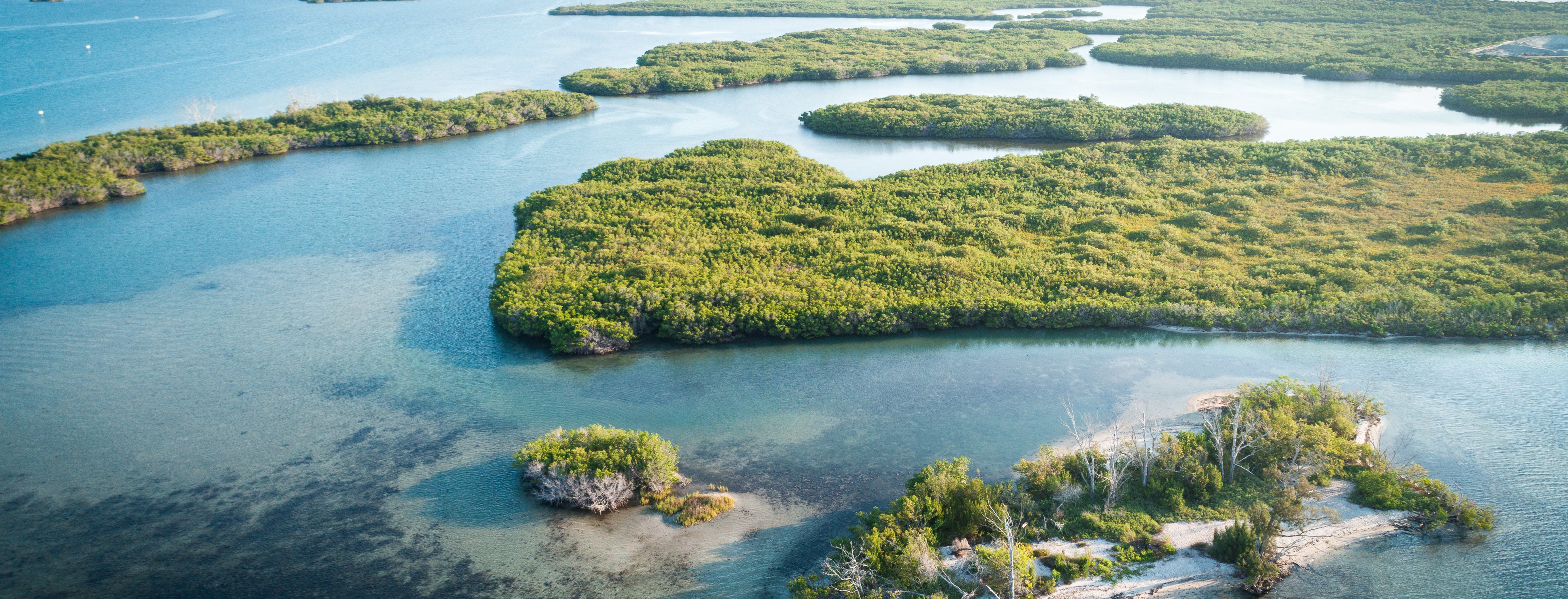
Volunteers dive into clean water programs to protect public health and restore coastal ecosystems
Florida is famous for its warm weather, sandy beaches and an abundance of recreational water opportunities. Beachgoing and other coastal pursuits drive a tourism economy in Florida that is worth more than $50 billion every year. Unfortunately, Florida is also becoming infamous for poor water quality conditions that are creating an environmental and public health crisis. Sewage spills and failing wastewater infrastructure, mismanagement of freshwater resources, and stormwater and agricultural runoff are all contributing to these water quality issues. These pollution sources have left a legacy of high levels of nitrogen in Florida’s rivers, estuaries and bays that fuel harmful algae blooms. When these algae blooms are toxic they can cause health symptoms in humans and die-offs of fish, birds, turtles and marine mammals. Even when the algae is not toxic, the blooms smother coral reefs and kill seagrass meadows by blocking out the sunlight these aquatic plants need to grow and thrive. The impact of Florida’s declining seagrass meadows in the Indian River Lagoon and other warm-water estuaries where manatees spend their winters has been particularly heart-breaking. Without the seagrass to eat, these beautiful creatures are literally starving and we’ve seen massive declines in their population in recent years. In 2021, 1,101 manatees died, largely due to starvation. With only approximately 7,000 - 8,000 manatees left in Florida, that means that more than 10% of the population was lost last year alone. Sadly, over 400 additional manatees have died thus far in 2022.
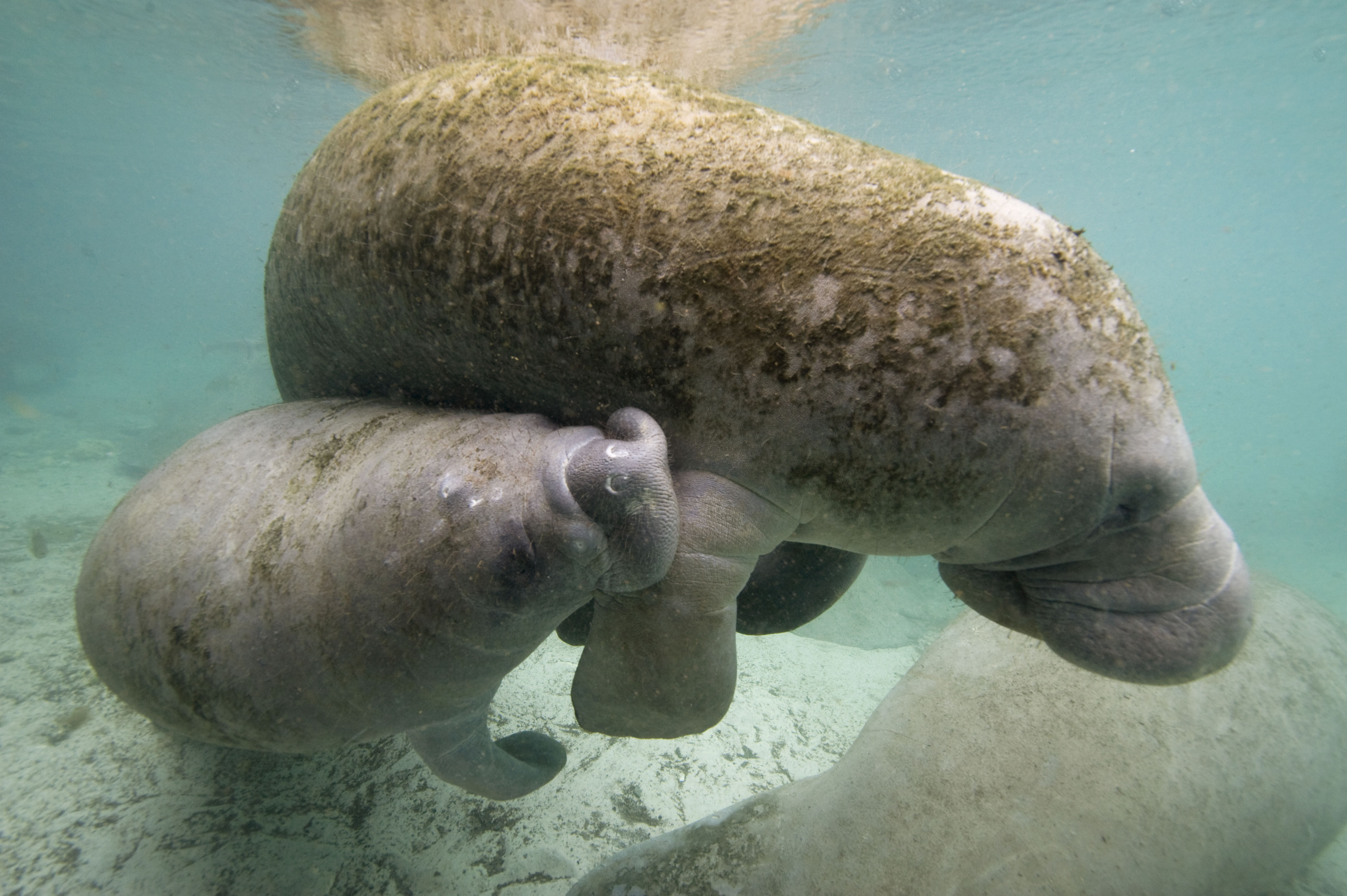
At the same time, the Florida Healthy Beaches Program does not have the resources or staffing it needs to monitor water quality and provide adequate public health coverage at all beaches throughout the year. In fact, all beach testing stops in the northern half of the state from October or November through the beginning of March. Even during the sampling season, testing only occurs once every two weeks with the exception of the five most southern counties where beaches are sampled weekly. This clearly leaves public health unprotected at the beach in many instances.
Testing the Water
Due to the growing concerns with water quality, several Surfrider Foundation chapters have started Blue Water Task Force (BWTF) water testing programs in Florida in recent years. In 2019, the Space Coast Chapter, previously known as the Sebastian Inlet Chapter, launched their water testing program. With support from a local business, the Blue View Inn, to help purchase their lab equipment, the chapter started small by monitoring four sites, which were not being tested by the state, on a biweekly basis. This included recreational areas in and adjacent to the Indian River Lagoon. After each sampling event, the chapter communicated their test results to their community in a water quality report shared through email and social media.
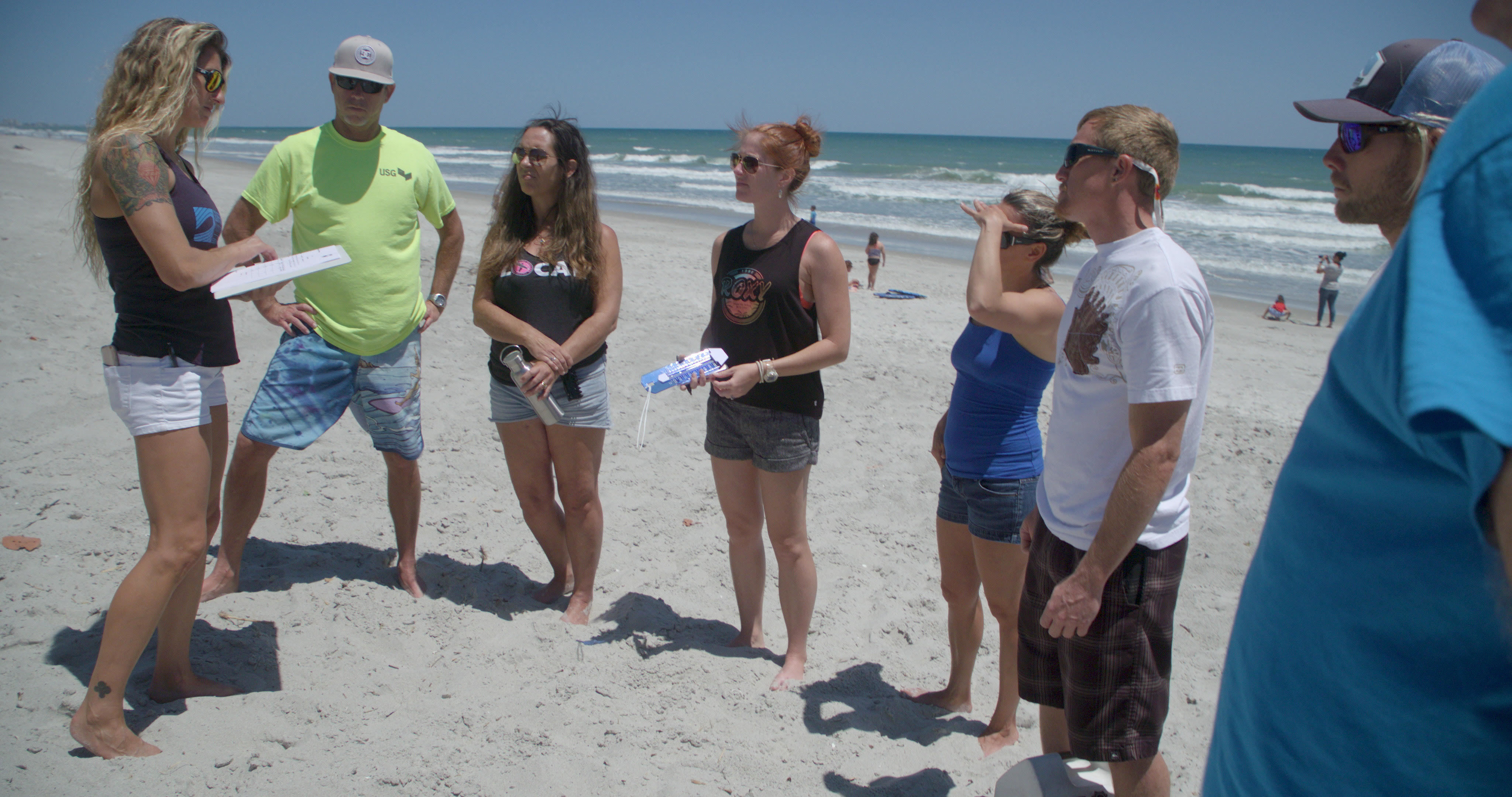
The former BWTF coordinator, Ryan Dadds, trains volunteers on how to properly collect and document water samples at the beach
Since then, the chapter has done a great job of building awareness of local water quality issues and has attracted more volunteers and a new partner to the program. With a second lab housed at the Marine Resources Council, a local NGO with the mission of protecting and restoring the Indian River Lagoon, the Space Coast BWTF now covers 15 testing sites along the Indian River Lagoon from Wabasso Island in the south to the Cocoa Beach Pier in the north. View all of the chapter’s sampling sites and their test results on the BWTF website.
The chapter and the Marine Resources Council, are finding that many of their creek sampling sites are measuring high bacteria levels that consistently exceed state water quality standards set to protect public health in recreational waters. This is especially alarming as humans and manatees both heavily use these recreational waterways. For instance, 80% of the test results from Turkey Creek at Ais Trails Park failed to meet state health standards in 2021.
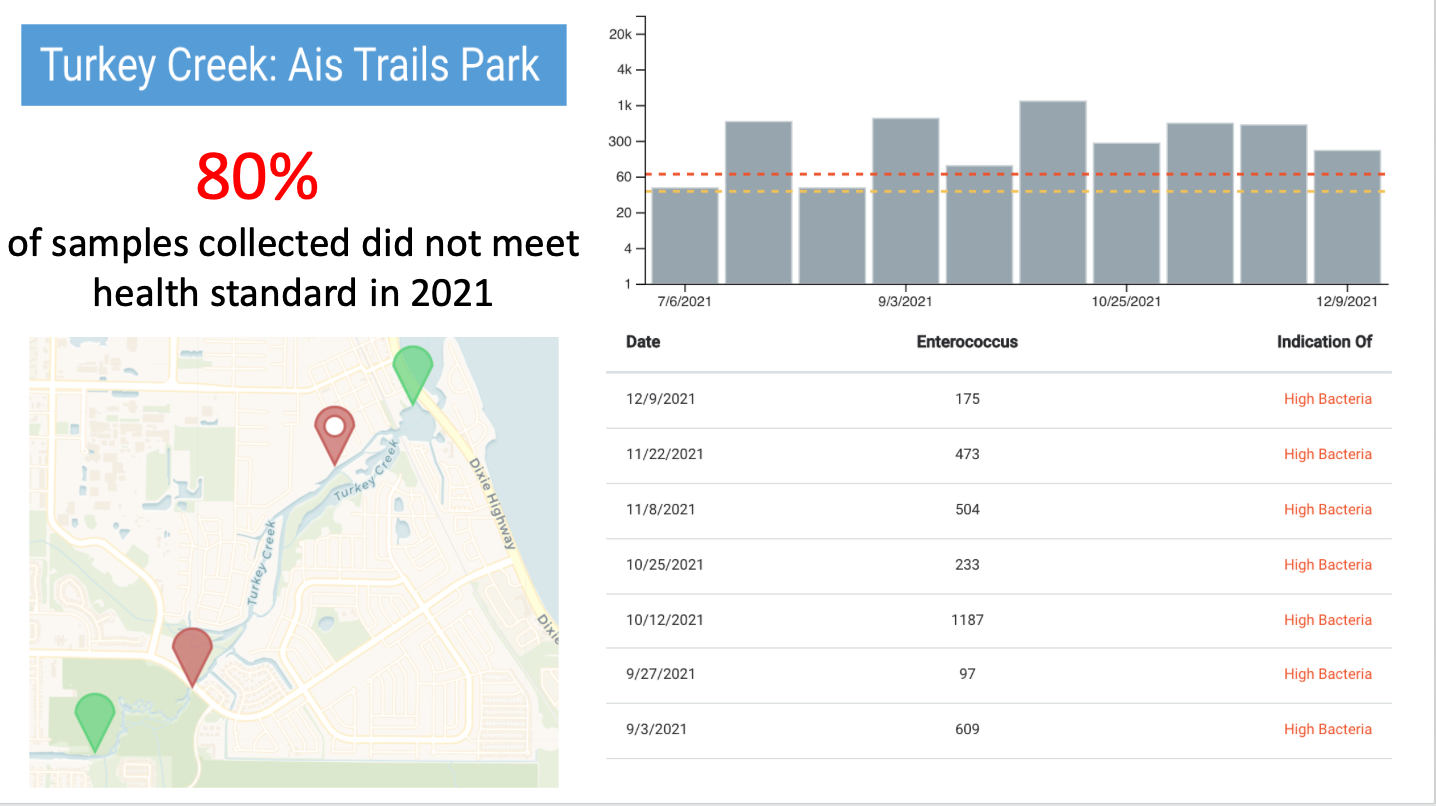
Another popular recreational spot for families with young children at Ballard Park showed high bacteria levels 58% of the time it was tested in 2021. Concerned with the potential impacts on public health, the chapter shared their results with the Florida Department of Environmental Protection (DEP). In response, the DEP is performing additional analyses on samples collected by both partners at four target sites, including Cocoa Beach Pier, Turkey Creek, Goat Creek, and Ballard Park, to measure several markers of human and animal sources of fecal pollution. This information is critical to identifying sources of pollution and developing solutions that will restore clean water in these waterways.
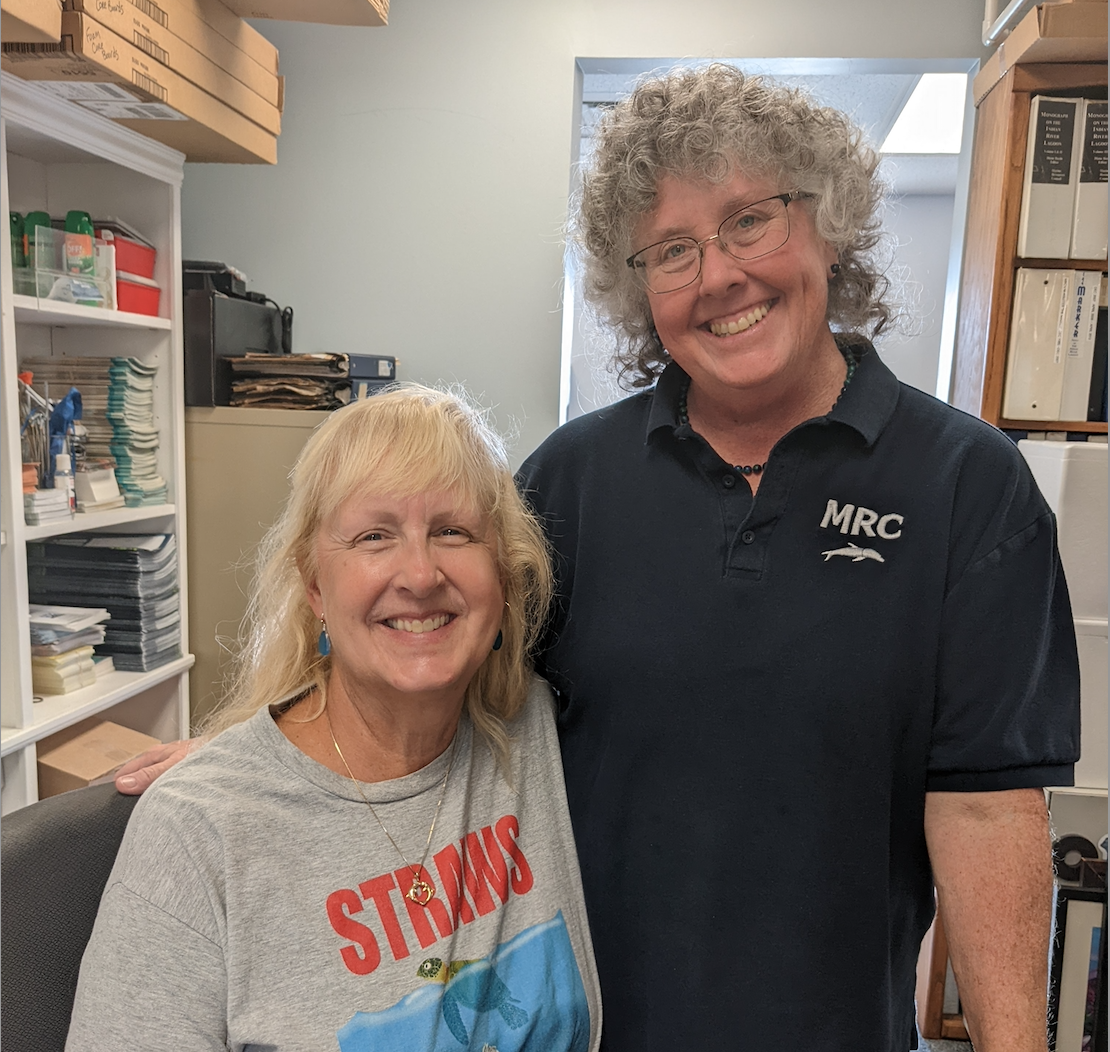
Kris Baker from the Space Coast Chapter and Kara Woods at Marine Resource Council pose together in the lab
Together, the Space Coast Chapter and the Marine Resources Council are looking forward to completing their source tracking project and continuing to expand their BWTF sampling to include more sites, particularly near boat launches and piers. The Marine Resources Council is also interested in testing for additional parameters that might shed more light on the environmental conditions that have led to the loss of seagrass in the Indian River Lagoon. If you are in the area, keep up with local events on the chapter’s Facebook and Instagram pages, and check out their annual fundraiser the Ocean Reef Beach Festival, which features educational activities, food and music.
Reducing pollution and restoring native habitat with Ocean Friendly Gardens
At the coast, sewage failures and stormwater laden with lawn fertilizers are two of the biggest sources of nitrogen, which is fueling the destructive, harmful algae blooms. Surfrider has successfully advocated for several local ordinances to reduce the amount of lawn chemicals that end up in surface waterways. The Space Coast Chapter has also diligently been teaching their community how to care for their yards sustainably through their Ocean Friendly Gardens (OFG) program. The chapter has installed and is maintaining several Ocean Friendly Gardens at local schools and public parks. Their OFG coordinator, Bill Deluccia, is also a native plant specialist and has been providing advice to the chapter and local residents on how to incorporate more native plants into their landscape and how to maintain yards without the use of harmful lawn chemicals. Bill operates under a philosophy that the best way we can start solving many of the environmental problems that our communities face is to restore the natural ecosystems and habitats that existed before our landscapes were altered by human development. Ocean Friendly Gardens offer the perfect vehicle to help make this positive change.
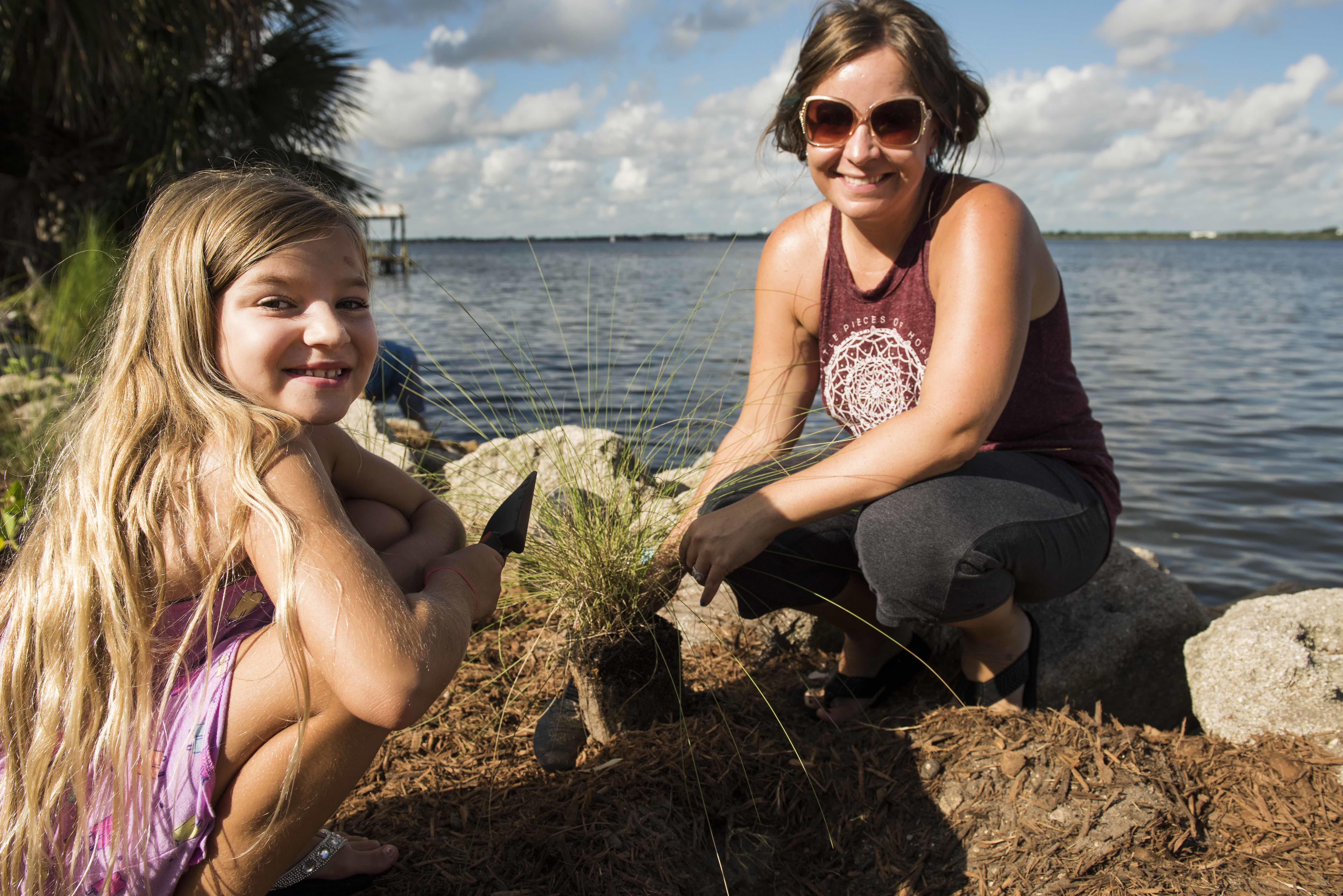
Above: Volunteers planting native plants along the Indian River Lagoon, Below: An established Ocean Friendly Garden helps filter runoff from nearby streets and lawns while providing sanctuary to both humans and wildlife alike
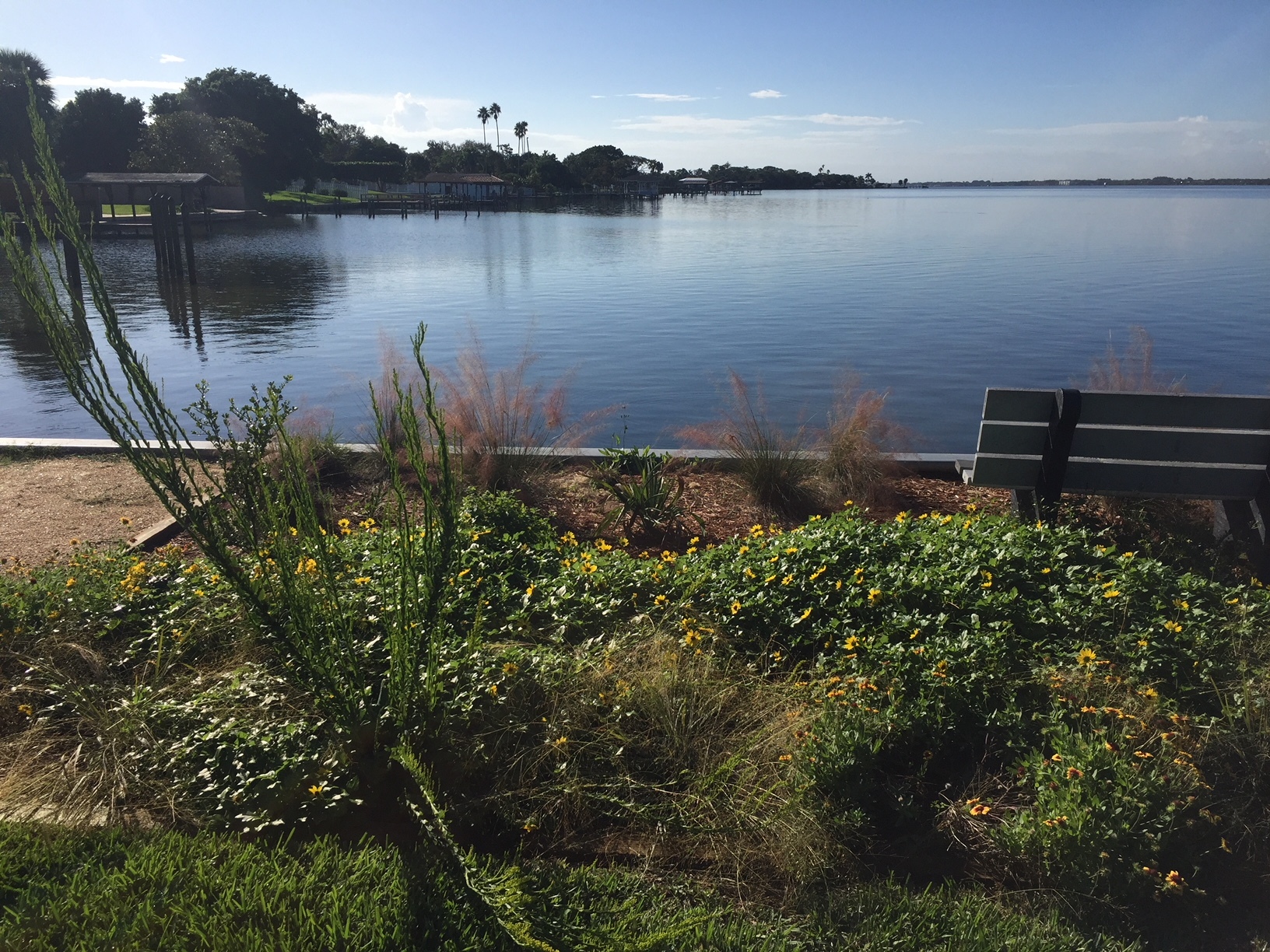
Bill is currently leading one of the chapter’s most ambitious OFG projects yet. Together with the City of Melbourne, the chapter has started a five year project on a municipal golf course located on one of the tributaries of the Indian River Lagoon. When completed, the Crane Creek Preserve Golf Course will be transformed into a native landscape that will help to protect water quality and restore habitat in this fragile coastal ecosystem. Another organization, Novo Nordisk, is also pitching in and sending volunteers to help with the transformation. Novo Nordisk has an ambitious goal of net zero emissions worldwide and is already carbon negative in the U.S. through the use of clean, sustainable energy sources at their facilities. The Crane Creek Preserve Golf Course will be an impressive example for golf courses throughout Florida and beyond.
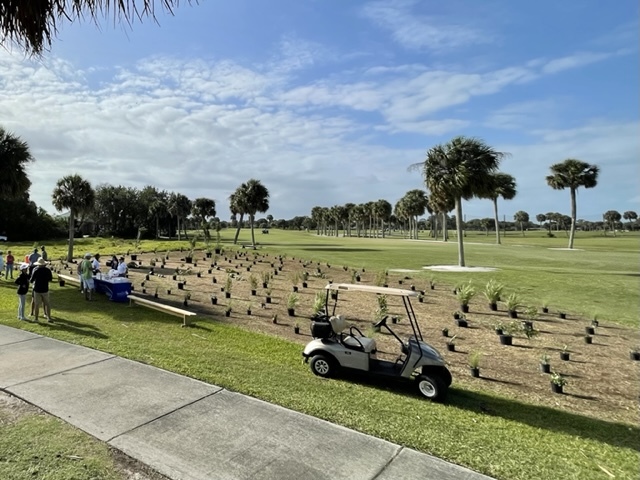
Native plants awaiting installation at the Crane Creek Preserve Golf Course
In addition to the Space Coast Chapter’s program work, Surfrider Foundation regional staff have been advocating for the state to adopt stronger stormwater regulations and to allocate significantly more funding for the Florida Healthy Beaches program to increase water quality testing coverage and improve public notification of polluted conditions in recreational waters. Surfrider also successfully fended off a bad state bill this year that would have allowed more seagrass beds to be destroyed during new coastal development projects. At the federal level, Surfrider’s advocacy to increase funding levels for the BEACH Act and wastewater infrastructure improvement projects will also help address the water quality issues that Florida is experiencing. At local, state, and national levels, the Surfrider Foundation is working hard to restore clean water and healthy beaches along Florida’s coast.
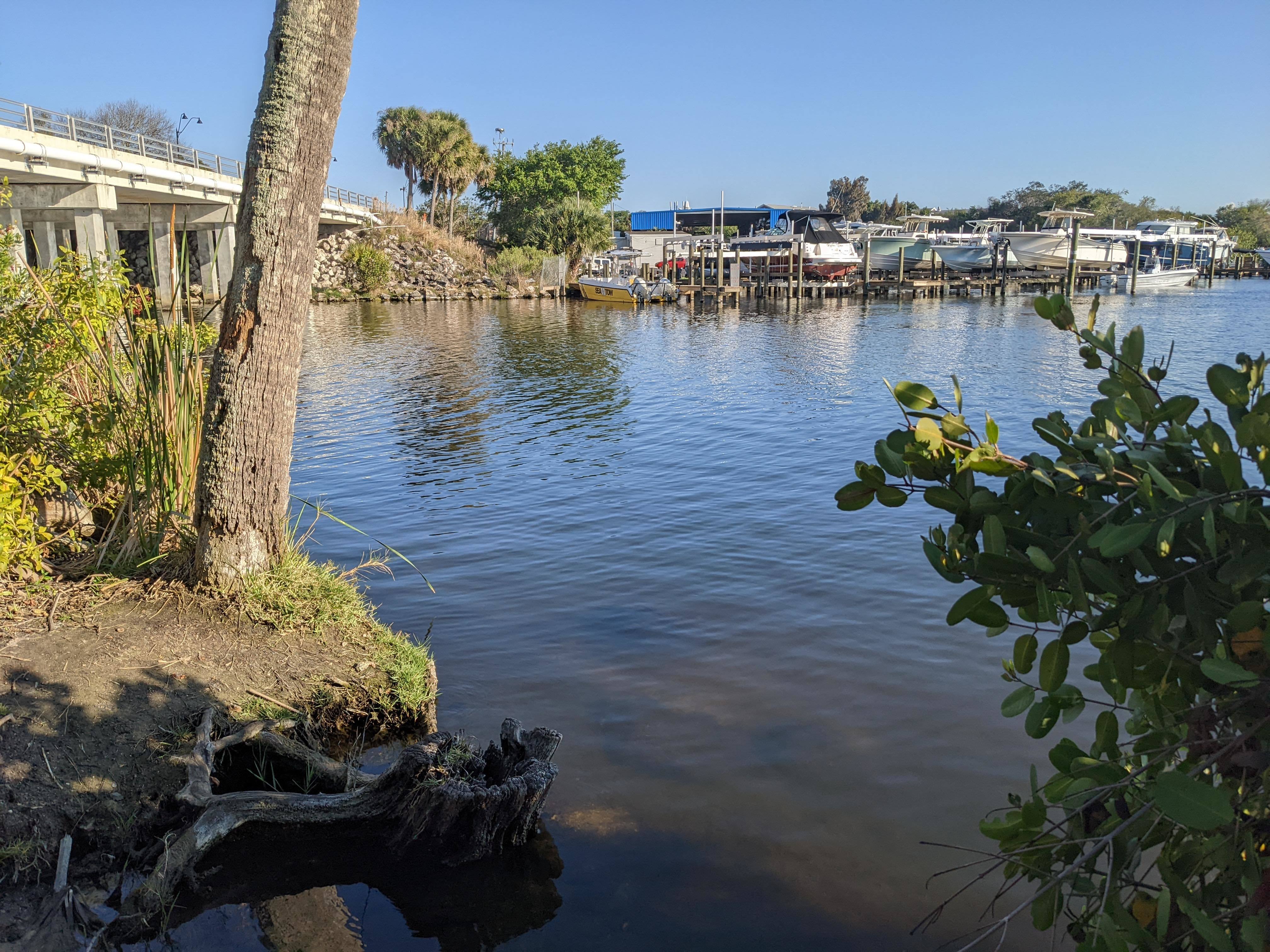
Space Coast BWTF sampling site at Turkey Creek and US1. Bacteria levels often exceed health standards at this widely used recreational waterway that discharges into the Indian River Lagoon.
